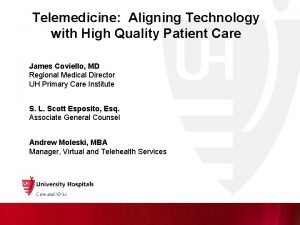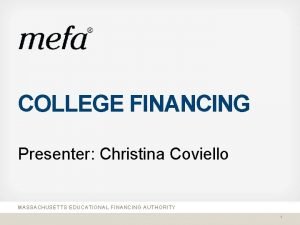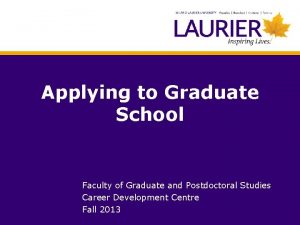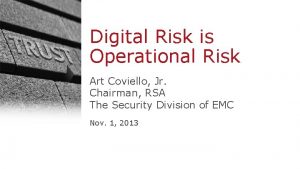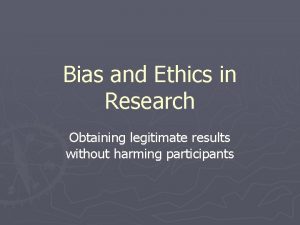Is IE Research Legitimate Nicole Coviello Wilfrid Laurier









- Slides: 9

Is IE Research Legitimate? Nicole Coviello Wilfrid Laurier University, Canada University of Turku, Finland

Hambrick and Chen (2008): • New academic fields are advanced through the process of differentiation, mobilization and legitimacy building My question: • Is IE ‘legitimate’? Approach: Assess all IE articles (1989 -2012) relative to a set of criteria from Hambrick and Chen (2008) • Extend Coviello, Jones and Mc. Dougall-Covin (in press) • • See also Jones et al. (JBV 2011), Coviello et al (JBV 2011), Galkina (2013)

1. Is IE ‘intellectually persuasive’? • Numerous high profile awards: • • 2000 AMJ Best Paper Award 2000: Zahra, Ireland Hitt 2004 JIBS Decade Award: Oviatt and Mc. Dougall (1994) 2014 JIBS Decade Award: Knight and Cavusgil (2004) Journal of International Marketing ‘Thorelli Award’: • Jones (1999), Knight (2000), Burgel and Murray (2000), Moen and Servais (2002), Chetty and Campbell-Hunt (2004) • Numerous papers in ‘top 10’ lists of strong journals • Academy of International Business Conference 2014: • 19 sessions; tied for largest area of interest

But… • Damaging reviews of IE (e. g. Keupp and Gassmann 2009) • Powerful critics in parent disciplines: • • E. g. Rugman et al (2011) argue there is little or no robust empirical evidence of ‘born global’ firms Lack of visibility in key conferences: • • Babson 2014: • 236 papers; only 15 IE (6%) Ao. M 2014 • 110 paper/symposium sessions on Entrepreneurship; only 4 IE (1%) • 72 paper/symposium sessions on International Management; 0 IE; 1 PDW

2. Does IE emulate acceptable norms and styles? • IE published in top journals and outside parent disciplines • 2010 -2012 (n = 248) 44% in strong journals Only 13% in the strongest journals AMJ 1 JIBS 9 ETP 13 JIMgt 3 ERD 4 JIMktg 7 IBR 18 JMS 2 IMM 2 JSBM 4 IMR 9 JWB 8 ISBJ 4 SBE 8 JBR 4 SEJ 4 JBV 8 SMJ 2

What I see as an editor? • Qualitative studies • • Demand for robust data collection and analysis procedures & detail often not met Papers are: • very descriptive • atheoretical • Survey studies • • • Authors re-label constructs across papers Inadequate reporting of how measures are adopted, adapted or developed Inadequate recognition of how retained items change the meaning of a construct

• Survey and database studies • Mismanagement of papers emerging from a single database • Authors slicing data too thinly • • Reliance on questionable proxies Inconsistent or confused of terms • Examples? • Writing that states or implies: BG = INV • Studying older firms that happened to internationalize early • …but calling them BGs • Using the term ‘global’ when ‘international’ or ‘regional’ is more appropriate • Using the term ‘rapid’ when ‘early’ is more appropriate

What does this suggest? Element Legitimacy Building Criteria IE Intellectual persuasion ? Emulation of norms and styles of adjacent established fields X

Implications? 1. Improve legitimacy through visibility Ø We are informed by (e. g. ) entrepreneurship as well as IB Ø Be visible at key conferences beyond AIB (e. g. Babson, Ao. M) 2. Improve legitimacy through methodological decisions: Ø Thoroughly apply best-practice qualitative methods Ø Use, report and interpret measures carefully and correctly Ø Adopt best-practice when managing large data bases 3. Improve legitimacy through careful use of IE terminology
